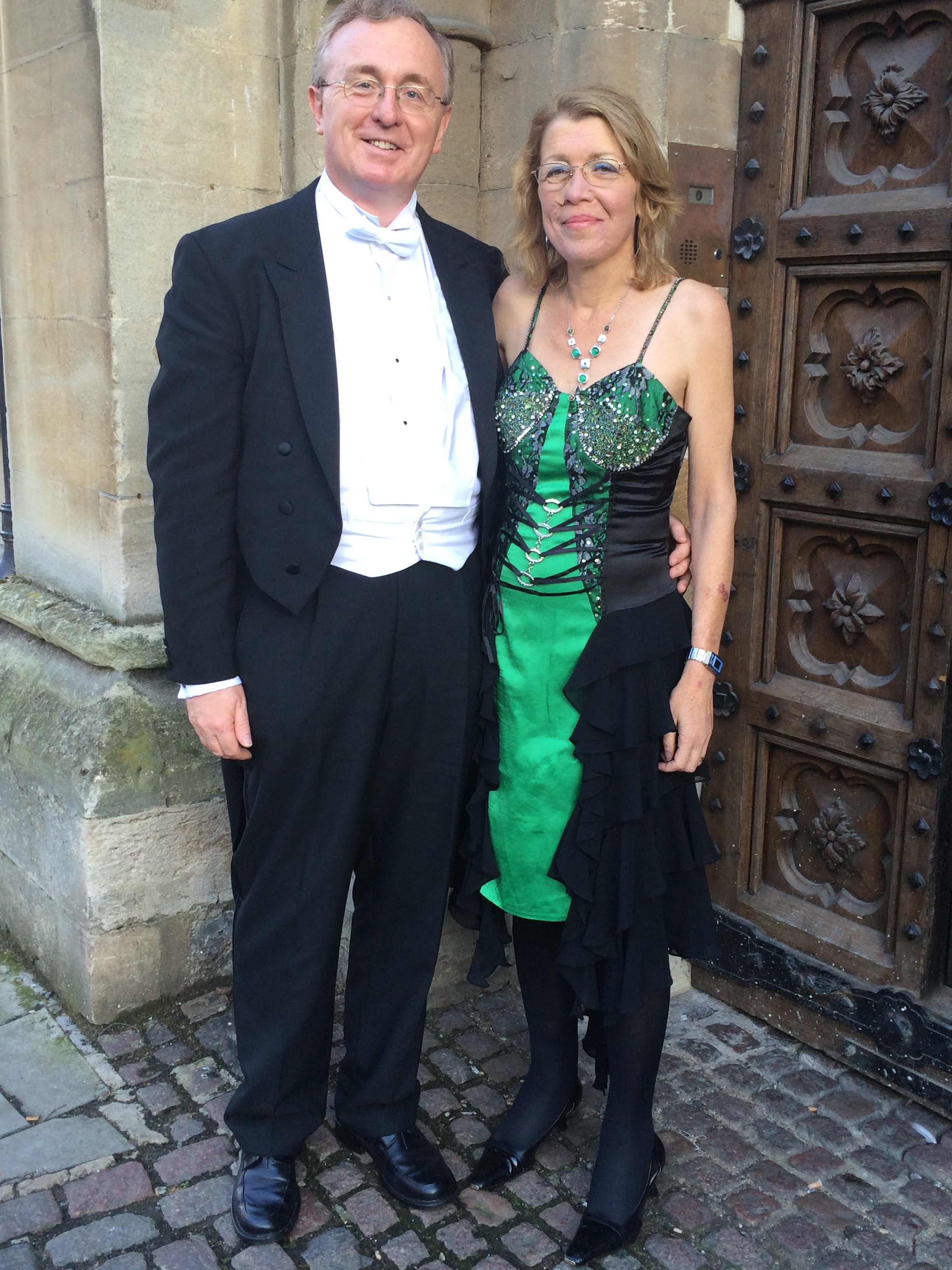Freelance medical writer Corinne Swainger is the most recent addition to Rescom, the TSA’s committee that oversees investment in research for both treatment
and a cure for TSC.
As well as more than 20 years working in pharmaceutical-healthcare communications, Corinne has an intimate knowledge of TSC, having been diagnosed at the
age of 28.
“As a teenager, I had a few TSC symptoms but no idea about what they meant. These included some red skin on one side of my face, which looked like rosacea
or acne, and two small growths on my nails that used to bleed sometimes but I didn’t think these were any cause for alarm.”
“Then at the age of 16, I was suddenly diagnosed with kidney disease, and eventually needed dialysis at 21,” says Corinne, who lives in London with her
husband Jonathan and their 15-year-old son Cameron. In 1986, she had a kidney transplant from her younger sister, Vanessa, and her health improved,
giving her a chance to travel to Europe after university.
“But it wasn’t until I was 28 that I was diagnosed with TSC, after my kidney doctor linked all these symptoms together, when he noticed I had some ash-like,
white spots on my skin.”
She describes the diagnosis as both a relief – and a terrible shock. “No one in my family has TSC,” says Corinne, who was raised in the US. “You just think:
Why me?’”
After looking into what TSC could mean for her, Corinne knew that she needed support. “My sister found the TSA and put me in touch with Janet Medcalf,
who managed the TSA family support services back then,” she says.
“Janet was so dedicated to the TSA and helping TSC families – she was quite amazing. She answered many of my questions, and also inspired me to become
more involved with the TSA.”
“Back in 1994, the disease was a mystery. I’m more mildly affected than some people but living and working with TSC can be challenging,” she says. “It
was also difficult to explain TSC to strangers so finding out that there were other people like me, dealing with similar problems, was a great relief.”
Corinne is also one of the founding members of the TSA Outlook Group, which celebrated its 20th anniversary this year. “When I joined the TSA,
it held support meetings for families but there was a growing need for support for mildly-affected adults,” she explains, “So a few of us became active
in setting up and running TSA Outlook.”
“To be a part of Outlook meant that I could finally let the barriers down and be myself, and it’s great to see it still helps other people to do that today.”
After being diagnosed with TSC, having her own child was something that Corinne thought she would never be able to do since she had a 50% chance of passing
on the condition.
“But I was wrong,” she says. ‘I met Jonathan, my husband, just after I was diagnosed – and amazingly he stuck around. We got married 21 years ago, and
he never doubted that we’d have a child, especially after doctors identified the two genes that cause TSC through TSA-funded research.”
When they decided to have a baby, Jonathan and Corinne opted for prenatal testing. “First, doctors needed to find the TSC mutations in my own genes, which
took two years but it was worth it,” she says. “Next, we needed to wait until I was 16 weeks pregnant to test the baby for these mutations.”
‘The wait between the genetic test and the results was a week, and I was so nervous when we received them,’ she says. ‘But to our relief, the results were
negative – Cameron did not have TSC.’
As the recipient of a donor kidney, Corinne’s pregnancy was closely monitored and Cameron was born one month early by planned Caesarean section “as the
pregnancy was putting too much strain on my transplanted kidney.”
Cameron is now a healthy teenager studying for his GCSEs. “My own healthcare challenges have probably made him grow up a bit faster,” Corinne says. “But
I couldn’t have got through all of this without the caring support of my wonderful family, my TSA friends and of course, Jonathan and Cameron.”
Now on her third kidney transplant – donated 13 years ago by her father Malcolm Land, now aged 79 – Corinne is looking forward to contributing to the TSA
by her new role on Rescom.
Both she and Jonathan (pictured below) were also TSA trustees for over 10 years. For much of this time he also served as the TSA treasurer. “After I stepped
down from that role a few years ago, it was very nice to be asked to be a lay member of Rescom,” she says.
‘I am looking forward to working with the other members, and I hope to be able to contribute with my skills as a medical writer, a TSA volunteer and my
own experience of having TSC.’




